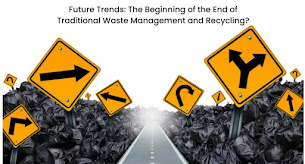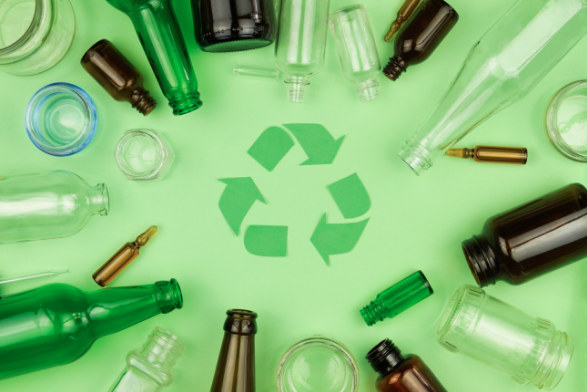Every day we hear stories about the impact of the 4th industrial
revolution, new technology, disruptive innovation, and circular economy
in our lives. Waste management and recycling have traditionally been a
“static” industry, as changes were usually small and incremental.
However, this pace of change is likely to accelerate, and we should be
ready to recognize and be prepared for technology trends that will
change waste generation rates, location, and processing methodologies.
Below are some possibilities to consider
Decentralization of waste generation and closing the loop
Technology innovations such as e-commerce websites, GPS tracking, and
WhatsApp have made shopping at home easier. We order online, and items
are delivered in the comfort of our homes at a time of our convenience.
Because of the nature of delivery, packaging material tends to be more
for online shopping compared to traditional brick and mortar shop
purchases.
The same for online food delivery. In a restaurant, one gets
food served in reusable crockery, but with online delivery, food is
delivered in plastic containers, together with plastic cutlery. As a
result, both residential waste generation rates and waste composition
types are likely to change. Simultaneously, we have the advent of 3D
printing. As 3D printer prices drop and technology becomes simplified,
we are likely to see the massive proliferation of these devices in
homes.
They could become a common standard in homes like a TV or fridge.
What is the link between 3D printing and e-commerce? Closed-loop.
Closed-loop is the foundation of the circular economy, whereby a waste
output from 1 process becomes the recycling input of another process.
3D printers used to require virgin material as inputs.
However, 3D
printers, using either recycled input material or incorporating an
ability to incorporate a mini recycling system, are being developed and
tested. Once they are effectively commercialized, users could use a
variety of inputs, for example, packaging waste, for these 3D printers
to make what products they want. As a result, we could see the
decentralization of waste generation, and reduction/elimination of waste
streams from these decentralized locations.
Continue reading Click Here : Waste Management | Waste Management & Recycling Company in Dubai



